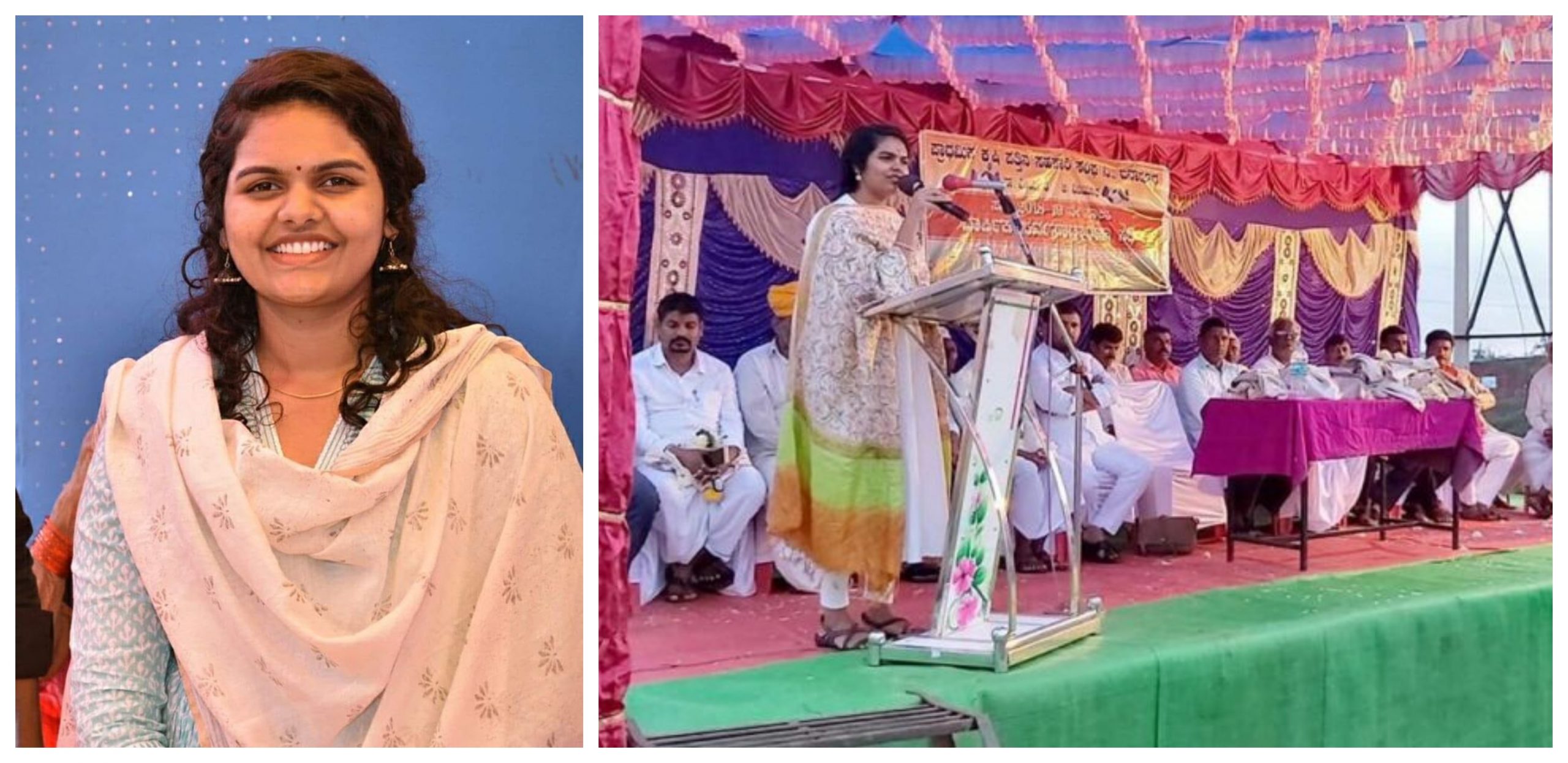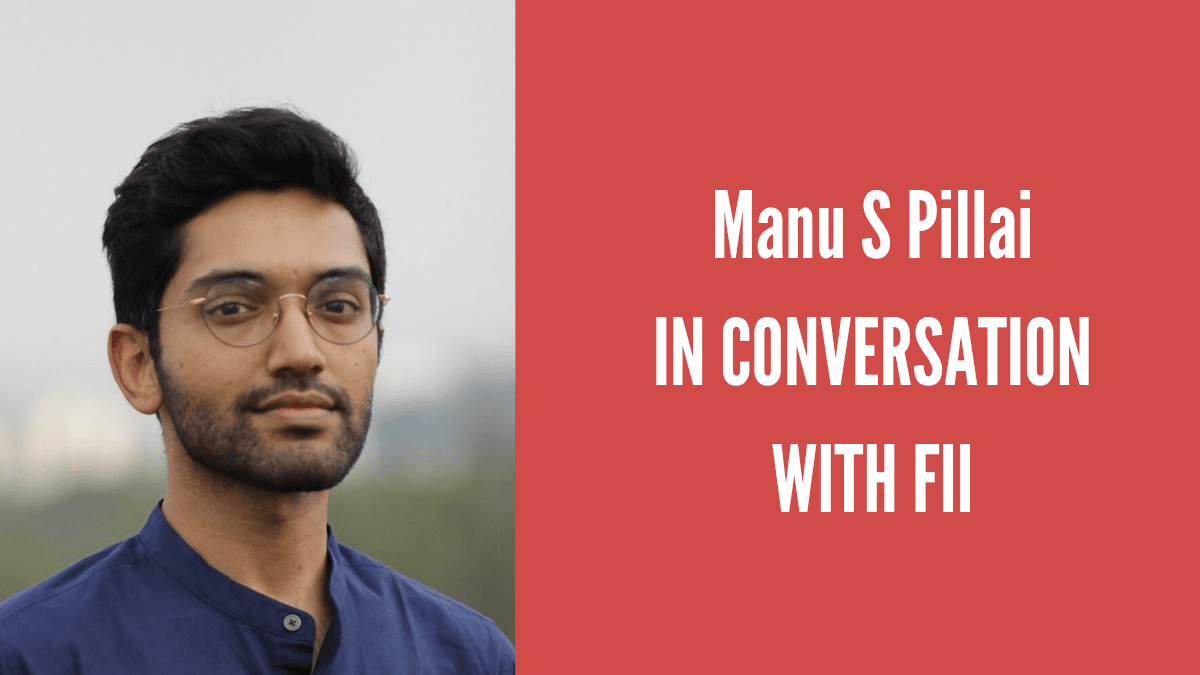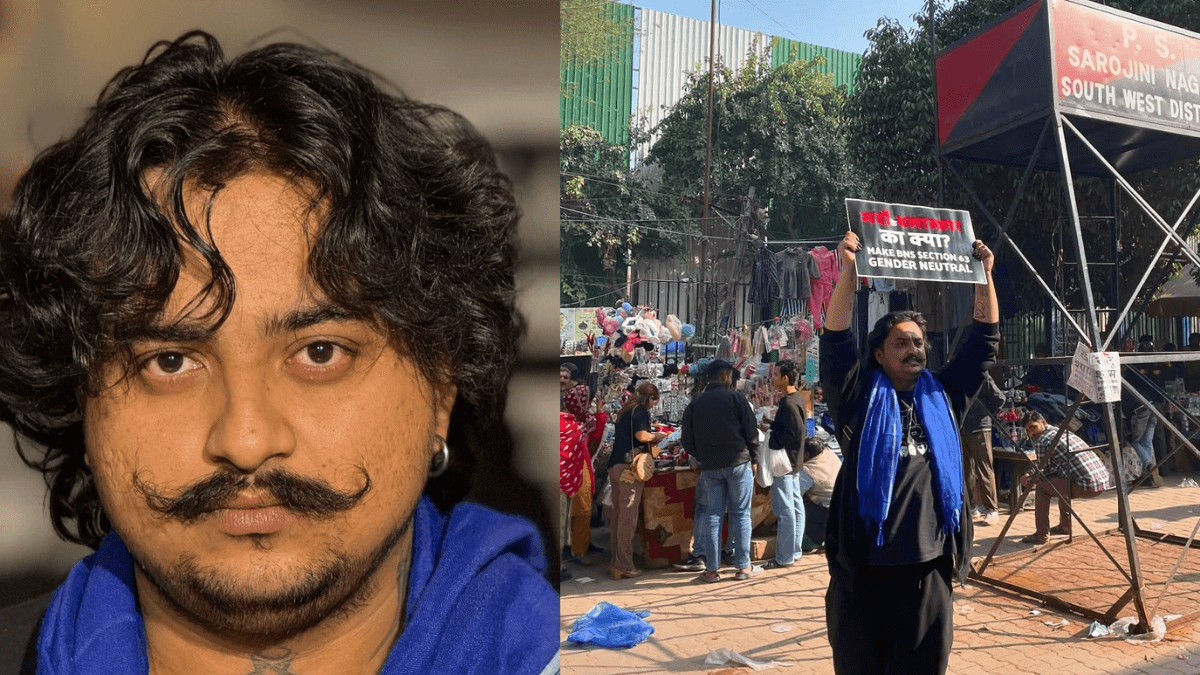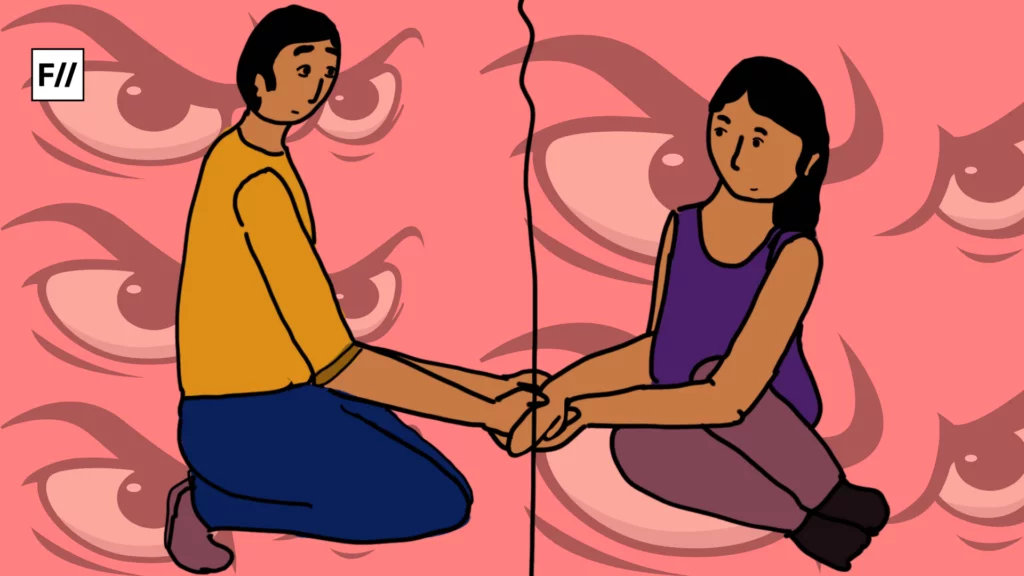Describing herself as a “Lawyer. Political Enthusiast. Foodie. Book Lover” on her Twitter bio, Samyuktha Patil is a politician who is currently the director of District Central Cooperative Bank Limited, a cooperative bank that works in the interest of farmers, rural women among others, located in Bijapur. Samyuktha was my senior in college and I remember her being one of the most accomplished mooters with a knack for International Law. She always wanted to be a politician and work at the grassroots level. Here’s what she has to say about being a woman and a politician in India:
1. How did your journey as a politician in Karnataka start?
Samyuktha Patil: I completed law from School of Law, Christ University in the year 2017. Initially, I did want to pursue something in the field of International Law, however, I remember my father asking me to start off my career working for local communities within my state. I started working in Sparsh Foundation (an NGO, that works to empower rural women by providing them access to micro-credit finance, access to government schemes and other programs). The organization definitely required someone young to work and take the work forward.
And so I became the Vice President & CEO of Sparsh and expanded their activities. We provided vocational training to rural women and this had also helped them to carry out their businesses. I lived and stayed in a place where there were no woman member in Dairy Cooperatives and hence, encouraging women to be part of financial decisions through groups and providing them vocational training was absolutely essential. I set foot in the politics of Karnataka as I took part in the political campaigning of my father’s election in the assembly. This is how my journey started.
2. What does a work day or week look like for you? And how did your journey progress till here?
Samyuktha Patil: A proper work day for me starts at 8:30 in the morning where I start meeting people for their required concerns such as pensions, domestic issues, issues with infrastructure in schools etc. I have my brunch at around 10:30 and attend events I’m invited to. I make time for discussing women’s rights with the locals in the afternoon, adhere to specific concerns relating to that and come back and continue with my readings and work for the Bank.
Towards the evening, I write letters to the government directing these concerns and also track the status and progression of the earlier issues that were raised. I make time for some Sparsh Foundation work and Dairy Cooperative Board work. This tight schedule faces its challenges when I’m invited to weddings; there have been times when I’ve attended 8 weddings a day! Some days I do make time to visit the interior parts of the villages personally to talk to people- as some of them may not find time to come all the way to visit our office. This is usually in the evenings when they are back from their work.
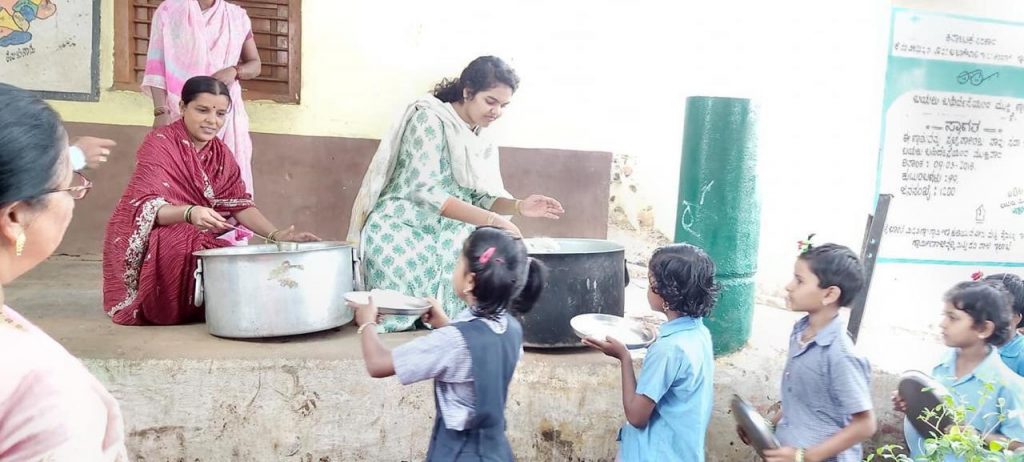
3. Could you tell the readers more on the beginning of your grassroot work and the impact it has on public policy?
Samyuktha Patil: I’ve always believed that there is no point of a well made policy if the implementation of the same does not impact the people. Once I started getting into this field, it became absolutely essential for me, as a politician, to understand how the law works in a grass root level. Having a ‘clean India’ policy to have one toilet per house would first require understanding the quality of the houses in the village, understanding how congested they are then analyzing how practical this policy is.
I feel like the lack of a ground level knowledge is the problem with policy makers and there is a need for awareness regarding the same to improve ground reality. I am extremely happy that during the formative years of my political career, I get the opportunity to do some ground work as this would be an essential experience for me to become an efficient politician and policy maker in the future.
I feel like the lack of a ground level knowledge is the problem with policy makers and there is a need for awareness regarding the same to improve ground reality. I am extremely happy that during the formative years of my political career, I get the opportunity to do some ground work as this would be an essential experience for me to become an efficient politician and policy maker in the future.
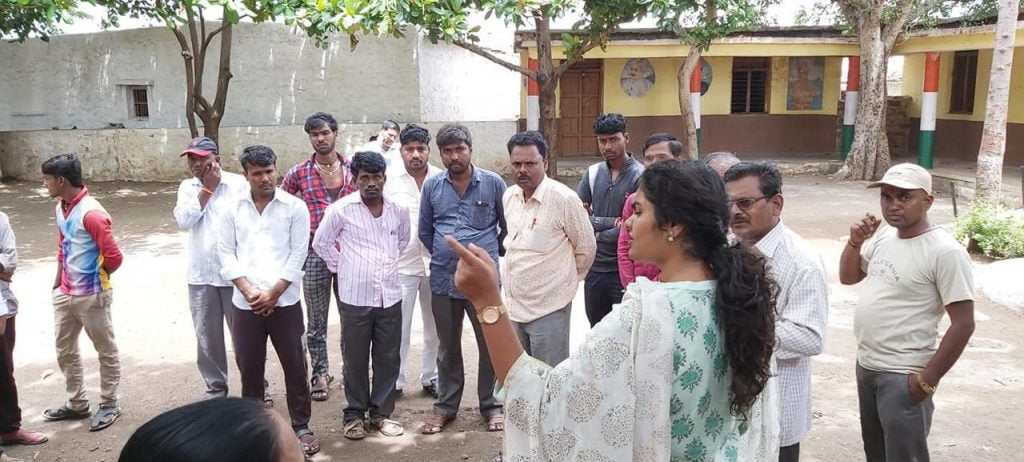
4. Would you call the work you do as women-centric?
Samyuktha Patil: Not all women politicians work on women’s issues. I was interested in the same when I started working in Sparsh, on work relating to self help financial groups. I realized that it was very difficult for women in villages to be financially independent as men and hence, they were inherently more susceptible to favours and loans despite women being more reliable, dedicated and credible. Let me give you some more ground reality about women in villages: they put in twice the effort, do the chores at home and finish their work to pay back the loan and then they finally come back to a home with men who spend that money on alcohol or gambling.
The cons of men’s addiction and their habit is usually covered up by women who lift this burden on their shoulders. They are victims to a highly patriarchal and oppressed structure. Women are so involved in their routine that there is no talk about mental health awareness or anything remotely connected to their well being. People tell me that I should do some work with male farmers, I say that I learn a lot more by working with rural women who usually are the anchors of the family.
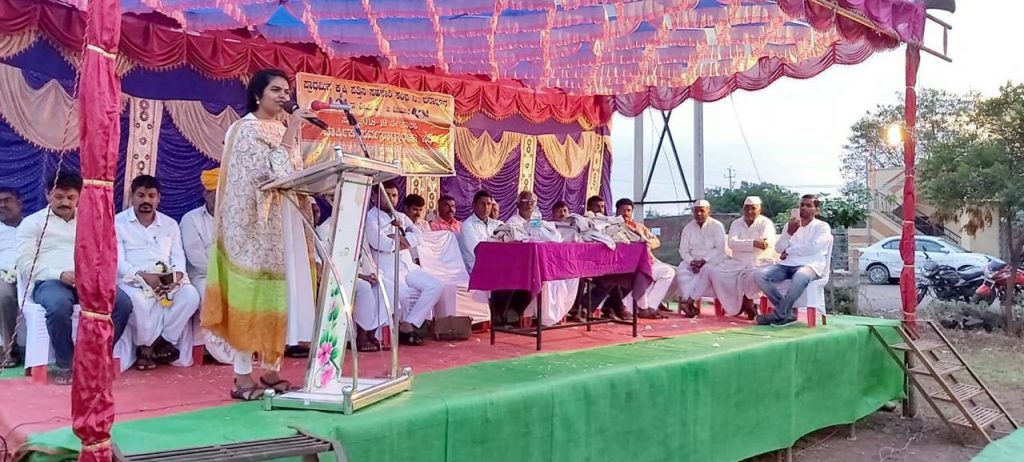
5. How does it feel to be an Indian Woman Politician? Could you tell the readers more on the challenges faced by you on an everyday basis?
Samyuktha Patil: It is very tough. Women in political spaces are in a highly toxic environment because of the existing patriarchal structure and the misogynistic notion the women are just “token entries” in this space. I acknowledge the privilege I have of being born in a political family, I acknowledge that my barriers to enter this space was much lesser compared to anyone else, and yet I face these problems on an everyday basis. People didn’t recognize me as a politician for a long time, it was like I am occupying some space which could have been given to a man instead.
On a daily basis I’m asked, “When will I get married?” and I also get unsolicited advice from people about how being single and doing political work is not the most ideal and secure position to be in. As a woman in politics, you’re never single, you’re ‘unmarried’. There is a lack of female solidarity I notice in politics too. There is a lot of competition to “fill the reservation spot”. I have had statements praising me saying, “Let the reservation come and then we can get her elected” as though we are not competent enough to get elected otherwise.
I completely understand and acknowledge the benefits of reservations but I’ve also seen how this space makes women feel like second class citizens who are there for just representation purpose. All of this can significantly change if there are more and more women who are encouraged to join this space, socially more than legally.
I completely understand and acknowledge the benefits of reservations but I’ve also seen how this space makes women feel like second class citizens who are there for just representation purpose. All of this can significantly change if there are more and more women who are encouraged to join this space, socially more than legally.
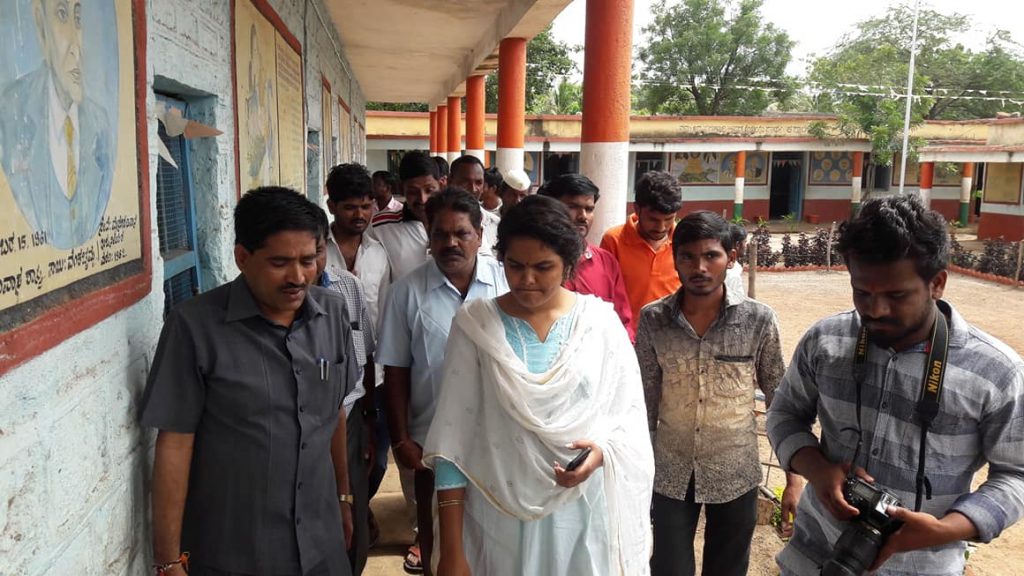
6. How would you encourage more women to join politics and overcome the barriers?
Samyuktha Patil: One of the most encouraging factor is education and completing the same, and this should start from a really young age. As part of my job, I want to go educate young girls about this space and how it can be bettered if more women join it. This can not happen alone, it can only happen if there is a socio-cultural change as well: we need to encourage strong, assertive, outspoken girls to never stop, to continue their zeal and I say this because I know it is possible to work on it if we all have the right attitude to change our mindsets.
Also read: In Conversation With Shantha Sinha: The Anti-Child Labour Activist
For women who are already existing in politics, I feel like there needs to be a mass awareness on how it’s not a competition amongst each other, how it’s not a “you or her” situation for that one spot. For women who are already established in this field, I feel that it is necessary they compete for the open position. We all need to overcome the barriers, be more confident, trust our instinct and definitely take more risks.
Convenience isn’t the only answer, someone has to take the pain. Politics gives you a lot of experience and memories. Moreover, it gives you a lot of things that you can take forward in your life, I am really happy to be part of this space and grow in it and I will work hard everyday to encourage other women to join my bandwagon!
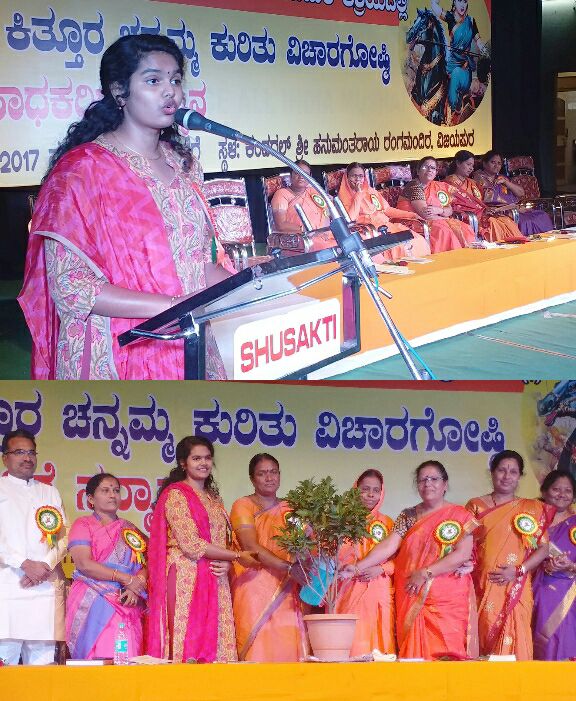
Also read: In Conversation With Abirami Jotheeswaran: Dalit Human Rights Activist
I thank Samyuktha for sharing her experiences regarding her work. Interviewing her has given me a new perspective as a public policy researcher, to understand work from a grassroots level before writing academic pieces on it. Thank you, Sam! Here’s to you and the other women politicians who never give up.
All pictures are provided by the author herself.
About the author(s)
Works as a Policy Officer at the Centre for Internet and Society. Views are personal.
